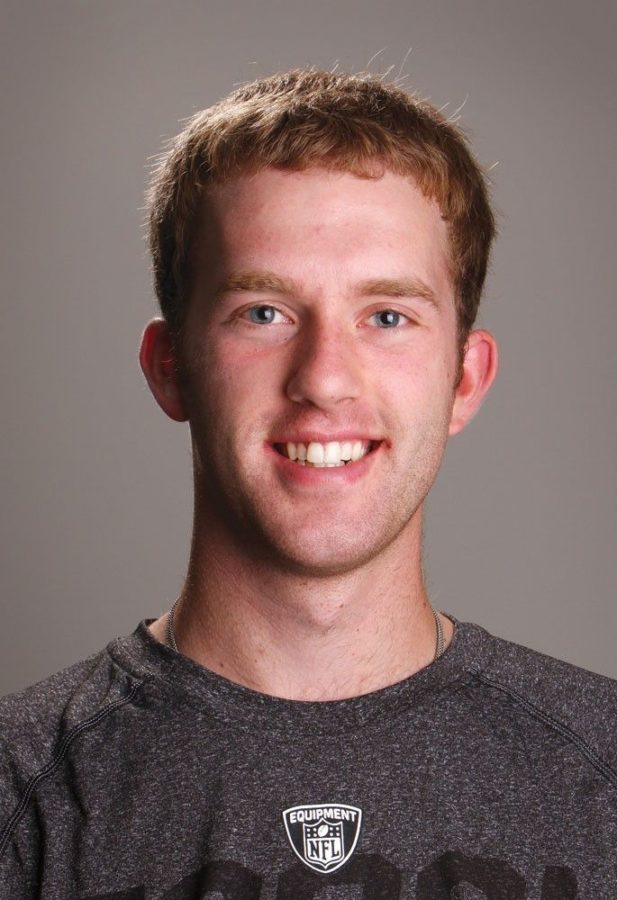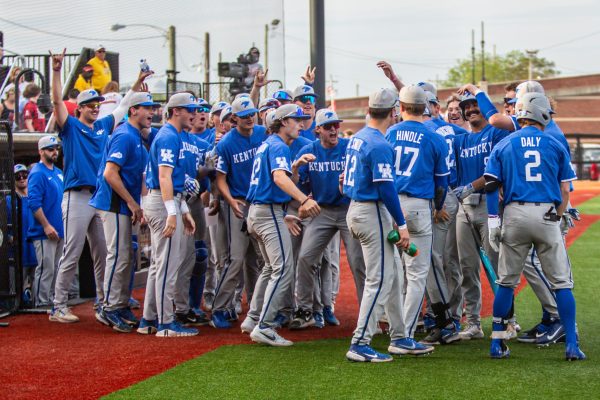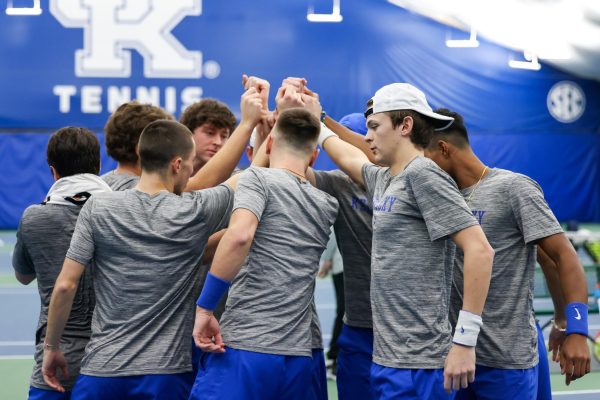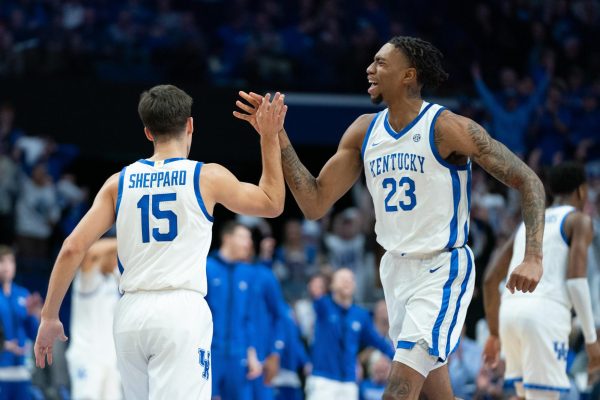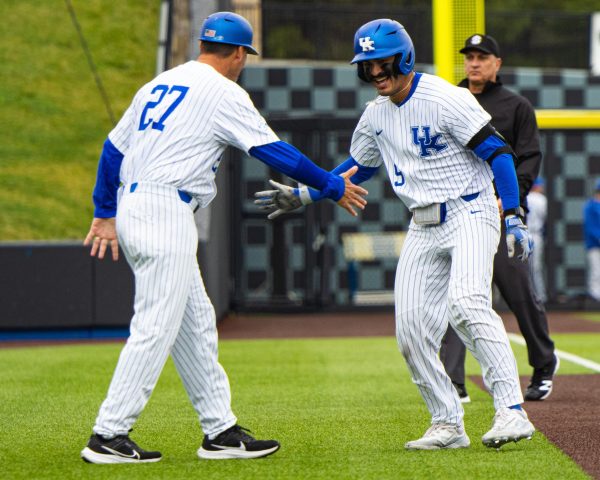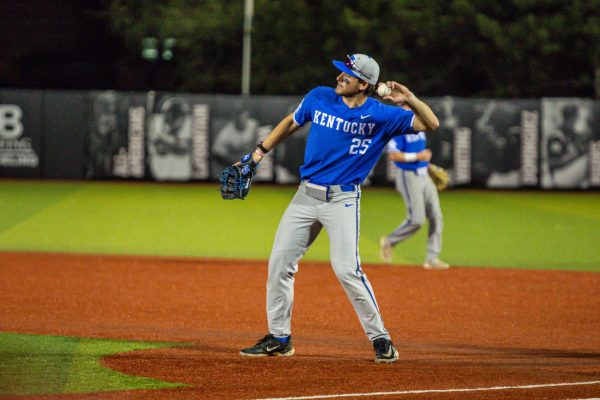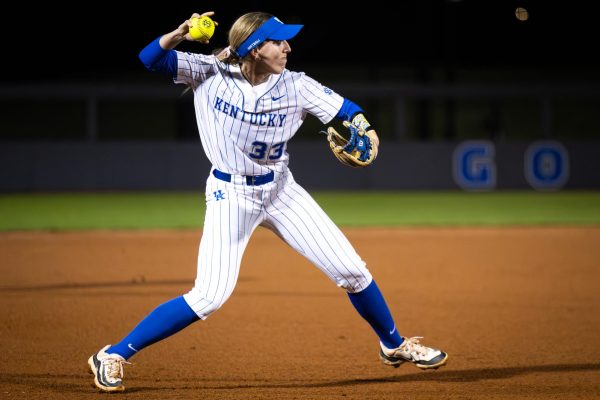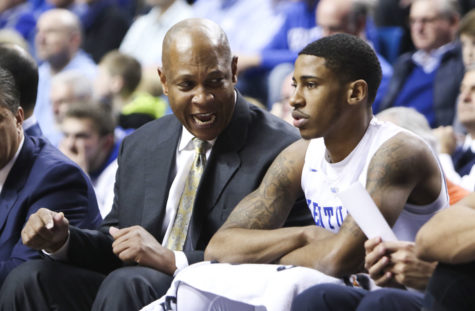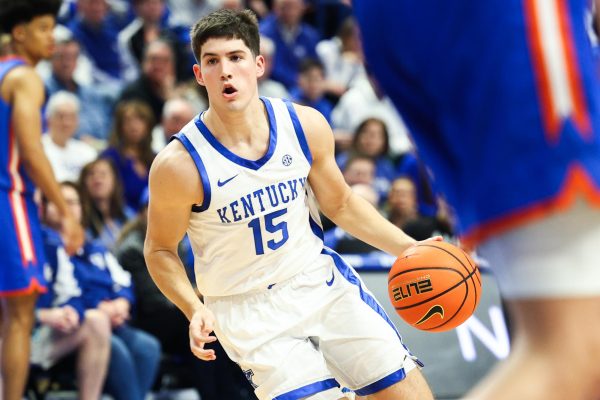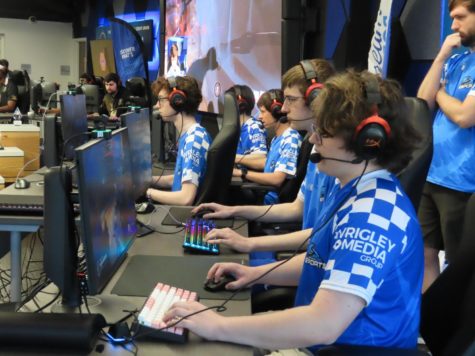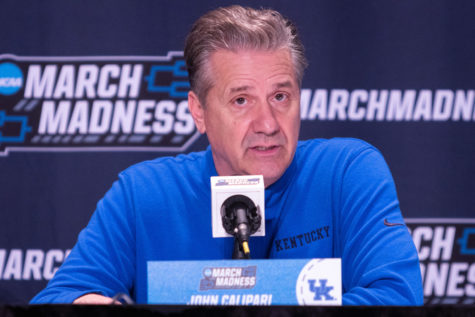The road through hell, paved by Harrow’s play
March 6, 2013
By David Schuh | @DSchuhKernel
“To get to heaven, you must go through hell.”
Those words, woven through twirling red flames, grace the left forearm of UK sophomore guard Ryan Harrow.
The tattoo, which he appeared to have gotten before the Louisville game in December, is an ironic symbol of the trials and tribulations that this season has brought the Cats and their starting point guard.
Harrow’s play has been the glaring example of every up and down his team has experienced.
First, there was Harrow’s mystery illness. After playing just 10 minutes in UK’s opening win over Maryland, he sat out the next two games with an ailment that even he couldn’t accurately describe.
Then, he missed two more games to deal with a family issue back home in Marietta, Ga.
He came back on Nov. 29 against Notre Dame and struggled. In two losses that week, he shot 2-13 from the field with just two assists. The Cats dropped from No. 8 out of the AP Top 25, the largest single-week drop in the poll’s history.
It took him until Dec. 15 to score in double figures, but suddenly, he caught fire. He scored at least 12 points in eight straight games. As he played well, so did the team. The Cats won 11 of 14 games and had fought their way into the back end of the Top 25.
And then, it all fell apart. In the midst of a lopsided loss to Florida, freshman center Nerlens Noel tore his ACL. The team suddenly felt the pressure of moving forward without the consensus No. 1 NBA Draft pick, and so did Harrow.
Between that game and the following one, a 30-point loss to unranked Tennessee, Harrow combined for zero points and one assist. He played a total of just 37 minutes in the two games. He had regressed, and so did UK, which was now staring down a potential NIT appearance.
Suddenly, the player who had paced his team to five straight victories had all but disappeared. Head coach John Calipari never criticized his point guard publicly, but called the team’s guard play “shaky at best” after the loss to Tennessee.
“We’ve got some issues to deal with,” he said after the game. “But the biggest thing is just battle, fight. You’ve got nothing to lose.”
Harrow knew he had to do something. He couldn’t handle riding the bench, and he saw his play driving the team down when it needed him the most.
So, there he found himself — sitting in Calipari’s office, hands sweating from apprehension, asking for his coach’s trust again.
“I just felt like I needed to go to Coach Cal and tell him that I was going to do whatever he needed me to do just so I could be out there to play,” Harrow said. “I called my mom right before and told her I was nervous. … I felt like I grew up a little bit.”
And it worked. Since walking out of that office, he’s averaging 14.3 points, 5.8 rebounds and four assists.
It was that aggressive mentality that reignited Harrow and the team.
UK has won three of its past four games. After a loss at Arkansas on Saturday, it’s still very much still a question mark for the NCAA Tournament.
Yet Harrow is on the forefront of the team’s progression. For the Cats to get it together down the stretch, he will have to play his most poised and consistent basketball.
He has again, in somewhat customary fashion for a Calipari point guard, become the catalyst for his team’s play.
Every time the Cats have played poorly, Harrow has as well. When they’re surging, he’s playing his best basketball.
“I think my play (has made the difference), playing more aggressive and being more assertive on the floor,” he said of his influence on the team’s success. “When I play well, it helps the team out a lot.”
Harrow and his teammates certainly haven’t arrived in basketball heaven yet, but they may very well have already passed through its version of hell.
















































































































































